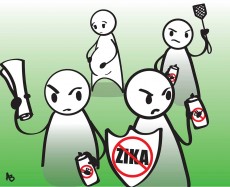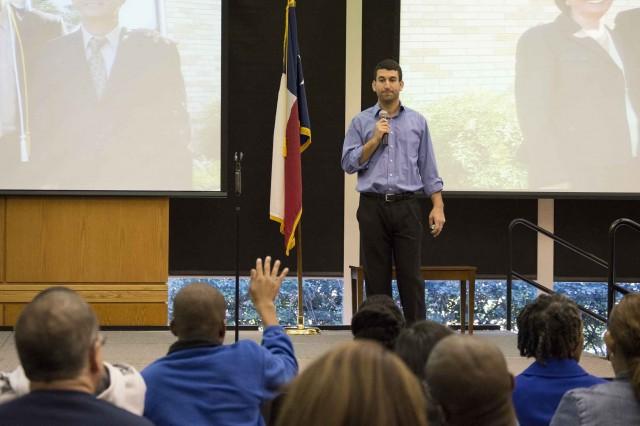The Centers for Disease Control and Prevention issued a list of countries that may be contagious to the Zika virus, mainly in South America.

This is the third outbreak since the Ebola and Chikuggunya virus that has prompted President Barack Obama to act quickly to contain the spread of a disease.
“Having the feeling across the country that we’re sort of reacting too late, like we did on Ebola,” U.S. Senate majority leader Mitch McConnell said.
Yet it is not a deadly virus. The Obama administration has asked Congress for $1.8 billion to fight the spread of the disease.
“We must work aggressively to investigate these outbreaks and mitigate, to the best extent possible, the spread of the virus. Congressional action on the administration’s request will accelerate our ability to prevent, detect and respond to the Zika virus and bolster our ability to reduce the potential for future infectious disease outbreaks,” the White House said in a Feb. 5 statement.
The CDC says it’s on the highest level of alert over the situation. If the bill is passed for $1.8 billion, it would aid to reduce the transmission of Zika virus, create mosquito reduction programs and protect the vulnerable places in America such as the Southern states, Texas and Florida where the virus has been confirmed.
It was first discovered in 1947 in the Zika forest in Uganda. It wasn’t until 1952 that it became medically documented in humans. A case of a 10-year-old girl in Nigeria was reported, and she recovered in three days. It wasn’t until recently the outbreak caught media attention through Brazil and other South American and Caribbean countries. The CDC advised that pregnant women avoid travel there.
The Zika virus produces a condition called microcephaly, which produces birth defects. The virus can cause the infant’s skull to be small and cause mental retardation, seizures and facial distortions. The virus’ effects on others are not fatal.
The common symptoms include fever, skin rashes, conjunctivitis, muscle and joint pain, malaise or headache. It’s similar to the flu with moderate body aches and rashes.
The proposed $1.8 billion bill to research the disease, which could be criticized for not being as urgent a health issue as Ebola, could be a big waste of funds. The virus is a threat. It does have very unpleasant effects, just like advanced cases of the flu, but it will disappear. There have been no confirmed deaths other than effects of microcephaly.
The Environmental Protection Agency advised people to use mosquito repellents that contain DEET and Picaridin when outdoors in humidity and near lakes and standing water where mosquitoes are prominent.
The $1.8 billion Obama proposal should be used for other serious health conditions in the U.S. It could be beneficial in enhanced research in preventing and slowing it down, but it doesn’t guarantee a vaccine.
“It’s very hard to control mosquitoes,” CDC director Tom Frieden said. “Our key priority is reducing the risk to pregnant women and their infants.”
Like Ebola, Zika has created a panic and should not be considered a hazard similar to Ebola.
“The good news is this is not like Ebola. People don’t die of Zika,” Obama said.
The Zika virus is a treatable condition. With rest and hydration along with fever/pain medications, it improves within one to two weeks.
Congress should not focus solely on virus research itself but spread its funding to other programs that could benefit conditions that present a more serious threat.
























